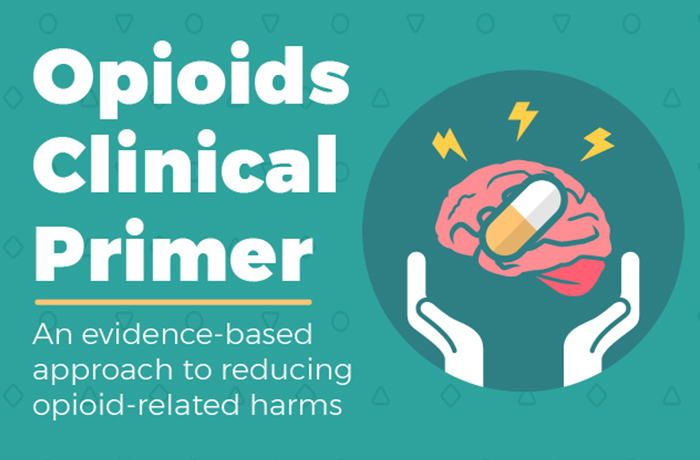It’s a sad truth, but in 2017 approximately 3,987 Canadians lost their lives in suspected opioid overdoses. It may seem like a daunting task, but Ontario health professionals can play an important role in keeping their patients safe, they just need to know how. The Opioids Clinical Primer Program was developed to address this need. The program is a partnership of Ontario’s Ministry of Health and Long-Term Care (MOHLTC) and the University of Toronto. It was developed in collaboration with experts from primary care, addictions and mental health from medical schools across Ontario including the University of Toronto, the Northern School of Medicine, Western University, the University of Ottawa, Queen’s University, and McMaster University.
University of Toronto’s Dr. Lynn Wilson, Vice Dean, Partnerships and Dr. Meldon Kahan, Associate Professor, DFCM, spearheaded this initiative and worked to establish funding and support through the Ministry. Once the program was approved for development, they pinpointed faculty members working on addressing the opioid crisis throughout the Faculty of Medicine and invited them to participate in this important initiative.
Dr. Jennifer Wyman, Assistant Professor, Department of Family and Community Medicine (DFCM), Family Physician and Addictions Specialist at Women’s College Hospital, was appointed as the project’s academic lead and led the development and launch of the Primer courses. Dr. Wyman engaged subject matter experts and CPD experts as well as primary care clinicians from each of Ontario’s six medical schools to ensure that the courses reflect the full range of perspectives and needs across the province. U of T Faculty including Drs. Abhimanyu Sud, Arun Radhakrishnan (DFCM), Dr. Ahmed N. Hassan (Psychiatry), and Dr. Kate Hodgson (CPD) contributed to the program as coauthors and expert reviewers.
The six-course program is a free, certified online program hosted by MacHealth that provides clinicians with an overview of key concepts and skills for facing common challenges in the management of patients with chronic pain and opioid use disorder. The first three courses, Opioid Use Disorder in Primary Care: Principles of Assessment and Management, Managing Patients with Opioid Use Disorder in Primary Care with Buprenorphine and Safer Opioid Prescribing Strategies were launched earlier this year and the last three, Mental Health, Chronic Pain, and Substance Use: Addressing the Connections, Strategies for Managing Chronic Pain: Moving Beyond Opioids and Treating Opioid Use Disorder: Initiating Buprenorphine in Primary Care, ED and Inpatient Settings are slated to launch in 2019.
The project falls under the Ministry’s opioid strategy of providing educational tools to help physicians navigate the complexity of opioid prescribing, managing chronic pain and management of opioid use disorder. You can learn more about this program and the issues and complications that populations are dealing with as part of the opioid crisis by visiting opioids.machealth.ca or reaching out to Dr. Wyman at Jennifer.wyman@wchospital.ca or Twitter @JenniferWyman4.
